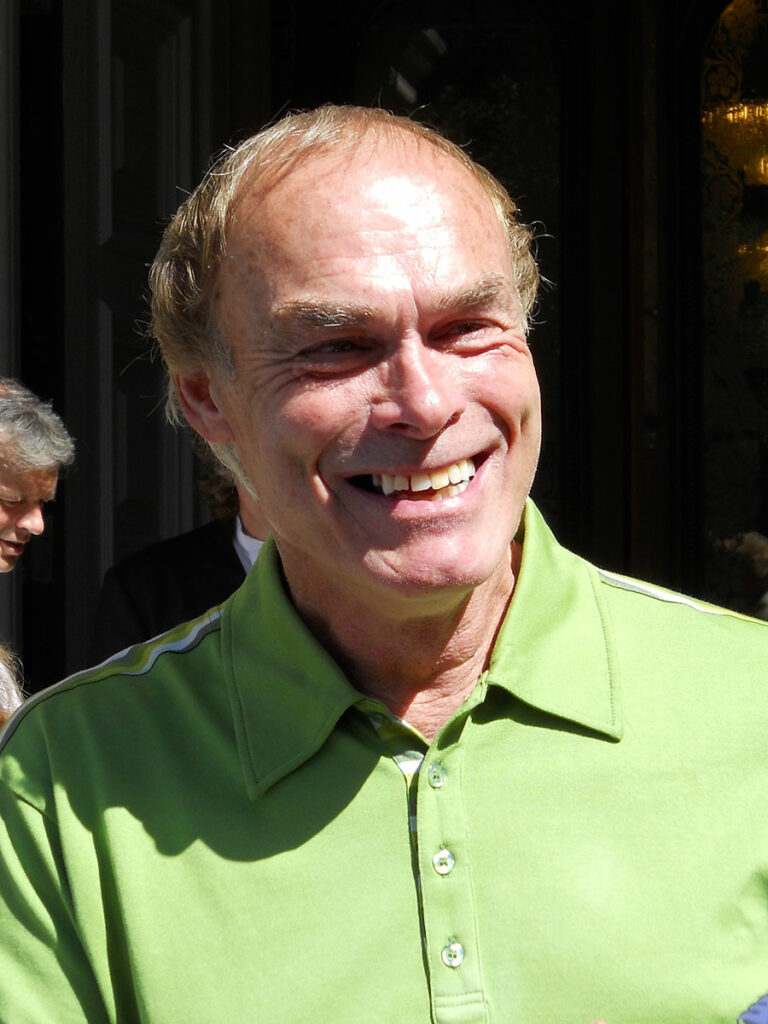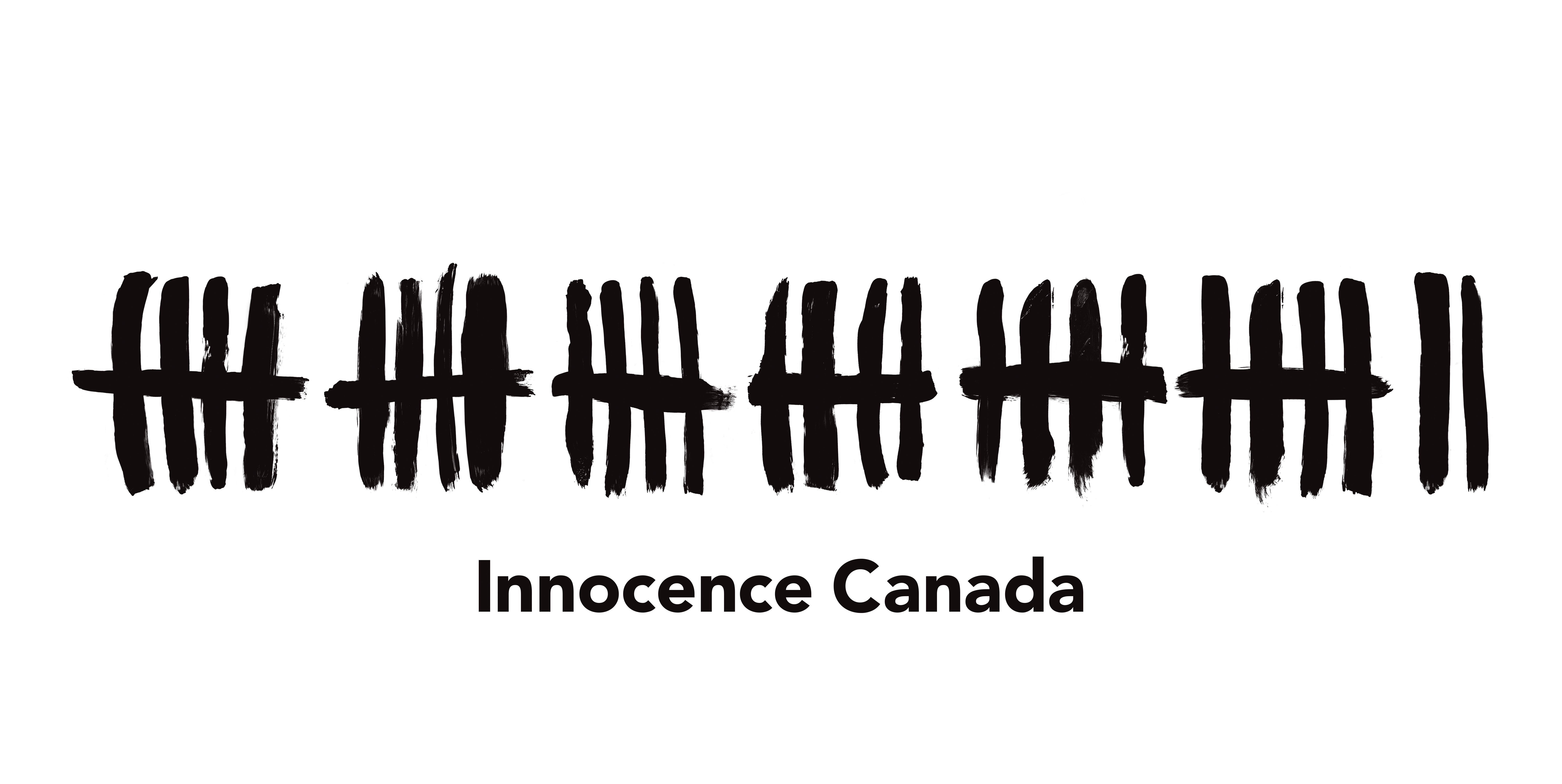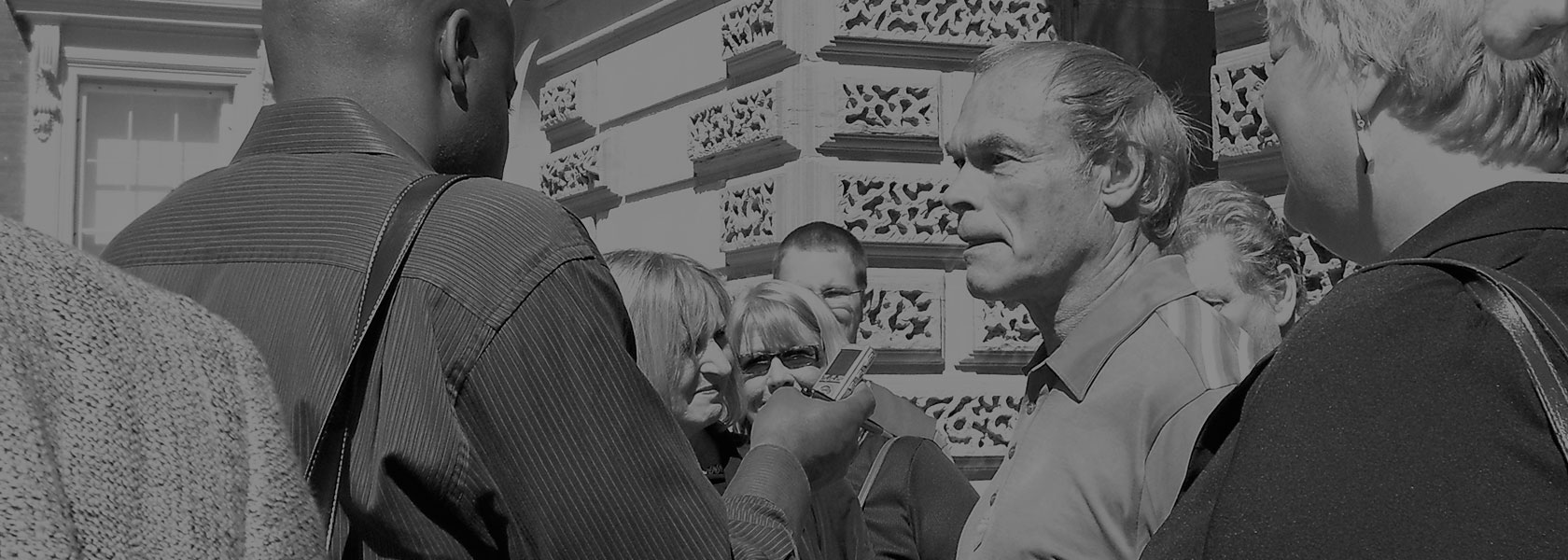Jack White
Author: Sarah Harland-Logan
Introduction
Jack White’s life has been marked by an astonishing series of horrific injustices. Jack was abandoned at birth by his mother and lived in foster homes until the age of nine. He was then diagnosed with a learning disability and placed in the Huronia Regional Centre, a facility for children with developmental disabilities that was located in Orillia, Ontario. Children living at Huronia, including Jack, were routinely abused by the staff members who should have aided and protected them. Half a century later, Jack would tearfully describe the sexual, physical, and emotional abuse that the children endured. “I can see the pictures in my mind,” he explained; “It is not an easy thing to talk about.”[1]
Thirteen years after his placement in Huronia, Jack received test results revealing that he did not in fact have a learning disability. He was finally released from a hellish institution where he should never have been admitted in the first place. Jack went on to earn his GED, and then a diploma in social work – specifically, in the field then known as “Mental Retardation Services.” His goal was to return to Huronia and work with the patients there, since he had spent years in their shoes.[2]
In 1970, Jack landed his dream job: he was hired as a counsellor at Huronia, where he would work with children with developmental disabilities. Jack was a hardworking, caring, dedicated employee for 23 years. He would later recall that “I always treated the residents as my sisters and brothers, because I was once there myself”; “I treated them like human beings and my friends. I liked getting the paycheque, but it wasn’t a job.”[3]
During these years, Jack received a number of awards for his community service, and was selected Orillia’s volunteer of the year. Sadly, Jack’s exemplary service to the Huronia community angered some staff members – the same sort of people who had abused Jack when he was a patient. Jack assisted police in their investigation into the death of a resident forty years earlier, and testified in the trial of the staff member who was eventually charged with manslaughter. He also co-wrote a report documenting staff members’ lack of adequate qualifications and ongoing abusive behavior. One of Jack’s colleagues, Daniel Wither, soon lodged a complaint about Jack’s report, claiming that it identified him as an abuser. But Wither would not stop there.[4]
In 1993, Jack was charged with sexual assault after Wither told police that he had witnessed Jack fondling a patient’s breasts in the shower and making sexually suggestive remarks. This alleged incident was completely out of character for Jack, who had made helping and protecting Huronia’s patients his life’s work. Jack knew this allegation was entirely untrue but the patient whom Wither identified as Jack’s alleged victim was not able to speak, and thus could not confirm or deny the charge.[5]
Jack’s Trial
Jack’s trial took only one hour and ten minutes. Although Jack had a very strong case – given his years of exemplary, faithful service at Huronia and Wither’s obvious motive to fabricate his allegation – Jack’s lawyer completely failed to present this evidence to the jury. To his amazement, Jack’s lawyer offered no defence to the charge: he did not even call Jack as a witness to tell his own story. Jack would later recall turning to the lawyer and saying: “What? Aren’t you going to put me on the stand?” Jack’s lawyer also ignored material – much of which was already in his file – which would have cast doubt on Wither’s credibility. For example, Wither had written a letter expressing his contempt for Jack, but this letter was not used as evidence in court. As Jack ruefully told reporters, his lawyer “forgot one thing … you have to rebut what the [other] guy says.”[6]
Given this amazing display of incompetence, it is not surprising that on March 28, 1995, Jack was convicted of sexual assault. The jury had deliberated for only 62 minutes. However, the judge noted Jack’s “legendary” dedication to the Huronia patients, and gave him a suspended sentence – meaning that although Jack had been found guilty, he did not have to go to prison.[7]
However, Jack did suffer a terrible punishment for a crime that he did not commit. He was fired from his job at Huronia, a loss that was no doubt keenly felt by the patients he had cared for.[8]
Jack’s Quest to Clear his Name
For the next 17 years, Jack – who has always maintained that the assault for which he was convicted never happened – fought hard to clear his name. During his quest for justice, Jack tried ten times to have his conviction overturned, filing appeals and other related documents with an arbitration board, the Ontario Court of Appeal, the Divisional Court of Ontario, the Supreme Court of Canada, and the Federal Minister of Justice. In his own words, he was simply “not going to let this go away.”[9]
Jack did gain some ground in May of 1999, at his 29-day arbitration hearing before the Grievance Settlement Board. The Board ruled that there was “overwhelming evidence” supporting Jack’s innocence. It found that Wither’s lies – motivated by “ill-will,” and “not credible in the extreme” – and Jack’s incompetent lawyer were responsible for his wrongful conviction. The board ordered that Jack be reinstated as a counsellor at Huronia and given back pay. However, the Crown successfully appealed this ruling, on the grounds that a criminal conviction could not be overruled in this way by an arbitration board. So despite the fact that Jack had proven his innocence before the board, he was still not allowed to return to his work at Huronia.[10]
Similarly, the National Parole Board officially pardoned Jack in 2006 – but while a pardon can be helpful in many ways (for example, in seeking future employment), it is not the same thing as an acquittal. Jack’s conviction still had not been overturned and thus he still had not managed to clear his name.[11]
A Miscarriage of Justice
The tide finally turned in Jack’s favor in May of 2009, when his local MP, Bruce Stanton of Simcoe North, happened to sit next to Innocence Canada (formerly AIDWYC) lawyer James Lockyer at a United Church men’s supper. Mr. Stanton explained Jack’s ordeal; he would later comment that “The guy is just salt of the earth. He is an upstanding citizen. He would never hurt anybody. That’s not just my opinion; it is attested to in the bulk of the evidence.” While it did not fit within the typical criteria, Innocence Canada took Jack’s case.[12]
On December 3, 2009, the Supreme Court ordered that the Ontario Court of Appeal reconsider Jack’s case. On June 30, 2010, Jack was at long last granted the chance to clear his name: assisted by Mr. Lockyer and fellow Innocence Canada lawyer Joanne McLean, Jack told his story before the Court. He was supported by numerous residents of Orillia and Owen Sound, who had driven three hours to be there with him.[13]
The Court of Appeal agreed that Jack had suffered a miscarriage of justice. The judges found that “substantial evidence” had been available back at his 1995 trial, showing that “Mr. Wither had a motive to falsely implicate” him. Moreover, they noted that by reporting the alleged sexual assault in 1993, rather than in 1989 when it supposedly occurred, Wither “was in breach of a directive, that he would have known about, to immediately report incidents of sexual abuse.” This evidence further undermined Wither’s already paper-thin credibility. The Court also criticized the “ineffective assistance” of Jack’s trial lawyer.[14]
The Court of Appeal quashed Jack’s conviction and ordered a new trial, which this time would be fair.[15]
However, on November 26, 2010, the Crown prosecutor withdrew the charge against Jack because there was “no reasonable prospect of conviction.” In other words, the Crown agreed that there was no real case against Jack, so there was no reason for him to have to go through another trial. When Justice Ted Minden, who had been assigned to conduct the new trial, heard the details of Jack’s case history, he remarked that it sounded “like something out of a Dickens novel.” He told Jack that he was “delighted” that the just outcome had finally been reached: “You have cause to celebrate,” he said, “and I hope you will.”[16]
Seventeen years after Wither made the false allegation against him, Jack had finally cleared his name. “For the last 17 years,” Jack told reporters, “That was the day I was living for.”[17]
Causes of Jack’s Wrongful Conviction: Incompetence of Counsel
There were two chief causes of Jack’s wrongful conviction. One was the incompetence of his lawyer. Since this type of shoddy practice can destroy a client’s life, lawyers are bound by strict rules designed to prevent catastrophes like the miscarriage of justice that Jack suffered. For example, the Rules of Professional Conduct that govern Ontario lawyers specify that every lawyer must “perform any legal services undertaken on a client’s behalf to the standard of a competent lawyer.”[18] This standard includes, among other things, the following two requirements, which Jack’s lawyer failed to fulfill:
- “Investigating facts, identifying issues, ascertaining client objectives, considering possible options, and developing and advising the client on appropriate courses of action”; and
- “Communicating” with the client “in a timely and effective manner.”[19]
Lawyers are honour-bound to provide “conscientious, diligent, and efficient” service to their clients. As noted in the Rules, “A lawyer who is incompetent does the client a disservice, brings discredit to the profession, and may bring the administration of justice into disrepute,” which is what happened in Jack’s case. However, Jack’s lawyer had passed away by the time his incompetence in this case was revealed, so an attempt to determine how far he fell short of professional standards, or whether disciplinary action would have been appropriate would be an exercise in futility.[20]
The Tragedy of Systemic Abuse and Closure for the People of Huronia
Tragically, rampant sexual, physical, and emotional abuse was inflicted on Huronia patients both during the time that Jack was a patient, and later, when he served as a counsellor. Institutionalized people, and persons living with disabilities, are abused at shockingly high rates. These stigmatized, marginalized individuals are attractive targets to criminals who prey on people who cannot defend themselves, are unable to report their attacker, and have little to no access to the justice system. For these reasons, approximately 3 in 4 women with developmental disabilities will be sexually assaulted in their lifetime, as compared to approximately 1 in 5 women without. Perhaps even more horrifying, however, is the fact that half of the perpetrators who target this population are service providers, like the abusive Huronia staff.[21]
There is, at least, a silver lining: on September 17, 2013, the Ontario government settled a class action lawsuit launched by survivors of abuse at the Huronia facility. As of November 2013, the Superior Court of Justice still has to approve this settlement; the hearing is scheduled for December 3 of this year. Assuming that the court grants its approval, the 3700 people who lived at Huronia between 1945 and 2009 (when the facility closed) will receive several forms of compensation for the abuse that they experienced, including:
- A total of $35 million – each individual survivor would be eligible for up to $42,000 of compensation;
- A formal apology from the Ontario government; and
- Proper maintenance of the Huronia cemetery – which has been disgracefully lacking – and the creation of a registry of the people buried there (a challenging but vital task, given that 1,440 of the graves are unmarked).
In the words of Patricia Seth, one of the lead plaintiffs: “I’m just elated to … not necessarily put the past at rest but put it on the back burner, because you can never forget something like that.” Patricia expressed her hope that, in light of this settlement, “We can move forward now, tell our stories. People believe us now.”[22]
Wounds that Innocence Canada Cannot Heal
Although Jack’s name has been cleared, he can never go back to his dream job working with patients at a now-defunct facility and protecting them from the rampant abuse that would lead to a class action lawsuit. In the words of James Lockyer, Jack’s conviction caused him to lose the “livelihood he loved.” And as a result, Jack has had to struggle to sustain himself through odd jobs and, more recently, as a janitor at the Orillia Mall. Mr. Lockyer noted that Jack “lives on the edge of poverty and that’s not right.”[23]
After the charge against him was withdrawn, Jack told reporters that “I’ve always had to prove myself to society – that I fit in.” Throughout his entire life, Jack has found himself “behind the eight ball” in a society that is often unsympathetic and cruel to people perceived as different. No one can restore to Jack the livelihood he lost, or the years of systemic abuse he suffered as a Huronia patient. We can only strive to create a culture that celebrates strong, resilient people like Jack, rather than seeking to destroy them.[24]
[1] Kirk Makin, The Globe and Mail: “A Life Ruined By Abuse and ‘Bashed Around’ by the Courts.” September 28, 2009, http://www.theglobeandmail.com/news/national/a-life-ruined-by-abuse-and-bashed-around-by-the-courts/article4294336/ [“Life Ruined”]; Jennifer Burden, The Packet & Times: “Jack White Cleared.” November 26, 2010, http://www.orilliapacket.com/2010/11/26/jack-white-cleared [“Jack White Cleared”]; Alex Horkay, The Star: “Charges Withdrawn Against Man in Alleged Sex Assault of Disabled Woman.” November 26, 1010, http://www.thestar.com/news/gta/2010/11/26/charges_withdrawn_against_man_in_alleged_sex_assault_of_disabled_woman.html [“Charges Withdrawn”].
[2] AIDWYC, “Jack White’s Conviction Quashed,” (2010) 11 AIDWYC Journal, pp 9-10 [AIDWYC Journal]; “Life Ruined,” “Jack White Cleared,” “Charges Withdrawn,” supra note 1.
[3] R v White, 2010 ONCA 474 at para 2, [2010] OJ No 2809 [R v White]; “Life Ruined,” “Jack White Cleared,” Charges Withdrawn,” supra note 1.
[4] “Life Ruined,” supra note 1; AIDWYC Journal, supra note 2; Jennifer Burden, QMI Agency: “Sex Assault Case Back to Square One: Lawyer.” November 24, 2010, at The Barrie Examiner: http://www.thebarrieexaminer.com/2010/11/24/sex-assault-case-back-to-square-one-lawyer [“Back to Square One”].
[5] R v White, supra note 3; “Life Ruined,” “Jack White Cleared,” “Charges Withdrawn,” supra note 1.
[6] Donovan Vincent, The Star: “Rare Second Chance as Sex Assault Conviction Reopened.” December 4, 2009, http://www.thestar.com/news/ontario/2009/12/04/rare_second_chance_as_sex_assault_conviction_reopened.html [“Rare Second Chance”]; “Life Ruined,” “Jack White Cleared,” supra note 1; “Back to Square One,” supra note 4.
[7] “Rare Second Chance,” supra note 6; “Life Ruined,” “Jack White Cleared,” supra note 1.
[8] “Life Ruined,” “Jack White Cleared,” supra note 1.
[9] Roberta Bell, Orillia Packet & Times: “Wrongfully Convicted Former HRC Worker Sees End of Case.” September 18, 2012: http://www.thebarrieexaminer.com/2012/09/17/wrongfully-convicted-former-hrc-worker-sees-end-of-case [“End of Case”]; Donovan Vincent, The Star: “Orillia Man’s 1995 Sex Assault Conviction Quashed.” July 1, 2010: http://www.thestar.com/news/gta/2010/07/01/orillia_mans_1995_sex_assault_conviction_quashed.html; “Jack White Cleared,” supra note 1; AIDWYC Journal, supra note 2.
[10] “Life Ruined,” supra note 1; AIDWYC Journal, supra note 2; “End of Case,” supra note 9.
[11] AIDWYC Journal, supra note 2; “Pardon FAQs,” Pardons Canada: www.pardons.org/pardons/faqs/.
[12] AIDWYC Journal, supra note 2; “Back to Square One,” supra note 4.
[13] R v White, supra note 3 at para 1; AIDWYC Journal, supra note 2.
[14] R v White, supra note 3 at paras 3-4.
[15] Ibid at paras 5-6.
[16] “Jack White Cleared,” supra note 1; AIDWYC Journal, supra note 2.
[17] “Jack White Cleared,” supra note 1
[18] The Law Society of Upper Canada. “Rule 2: Relationship to Clients” (2.01(2), p 9), Rules of Professional Conduct, available at http://www.lsuc.on.ca/with.aspx?id=671.
[19] Ibid at 2.01(1), p 7.
[20] Ibid at 2.01(1), pp 8-9; “Jack White Cleared,” supra note 1.
[21] Amanda Mahoney and Alan Poling, “Sexual Abuse Prevention for People with Severe Developmental Disabilities” (2011) 23 Journal of Developmental and Physical Disabilities 369 at 369, 372.
[22] The Canadian Press: “Huronia Survivors Reach $35-Million Settlement with Ontario Government.” September 17, 2013, http://www.theglobeandmail.com/news/national/huronia-survivors-reach-35-million-settlement-with-ontario-government/article14373078/; David Rosenfeld (Koskie Minsky LLP), via CNW: “Former Residents of Huronia Regional Centre Could Receive Benefits from a $35 Million Class Action Settlement.” October 11, 2013, http://www.newswire.ca/en/story/1241033/former-residents-of-huronia-regional-centre-could-receive-benefits-from-a-35-million-class-action-settlement; Rachel Mendleson, The Star: “Huronia Institution Cemetery a Painful Reminder of Neglect and Abuse.” September 17, 2013, http://www.thestar.com/news/gta/2013/09/17/former_residents_settle_huronia_lawsuit_for_35m.html.
[23] “Jack White Cleared,” “Charges Withdrawn,” supra note 1; AIDWYC Journal, supra note 2.
[24] “End of Case,” supra note 9.


